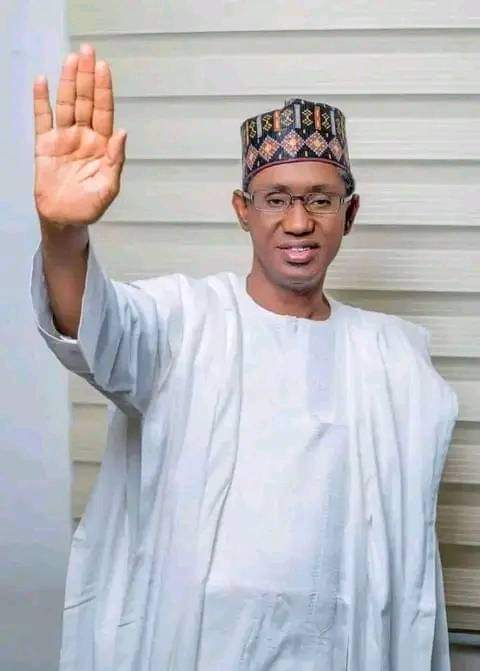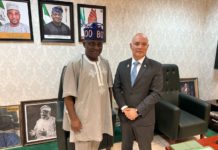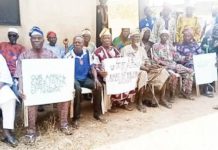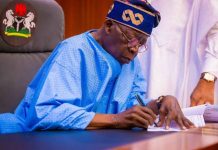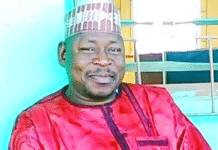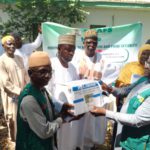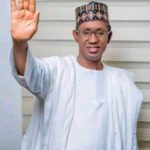Ribadu: Scorecard of Nigeria’s Most Outstanding NSA
By Barr. Danladi Danasabe
Nigeria’s security landscape has undergone profound transformation over the past two years, a period that has seen notable reformations under the watchful leadership of Mallam Nuhu Ribadu, the National Security Adviser (NSA).
His tenure, marked by quiet but strategic breakthroughs, has redefined Nigeria’s approach to national security, moving from reactive responses to proactive and intelligence-driven measures that align with global best practices.
Related news
PENGASSAN VS Dangote: Tinubu’s utility player, Ribadu scores another goal
FG slams terrorism charges against recently arrested Ansaru leaders
Ribadu community leaders hail NSA over high impact projects
Before his appointment in June 2023 by President Bola Ahmed Tinubu, insecurity had reached an alarming crescendo. From terrorism and banditry to separatist violence and cybercrime, every region of the country was under tremendous security threat.
But with Ribadu’s meticulous and strategic leadership Nigerians are now witnessing a gradual but decisive reversal of the tide of insecurity, powered by reforms, inter-agency coordination, and a strong philosophy anchored on discipline, integrity, and innovation.
When President Tinubu appointed Ribadu, a retired Assistant Inspector-General of Police and the first NSA without military background since 1999, critics questioned the wisdom behind such radical shift based on the myth that only a military officer could manage Nigeria’s complex security challenges with success.
But Ribadu has proved that success in addressing insecurity has little to do with the establishment one comes from but a function of intellect, discipline, and the courage one brings to the table.
In the span of just over two years, the results have been visible. Intelligence operations have become sharper, coordination among security agencies has improved, and Nigeria’s international security partnerships have deepened.
The National Security Adviser has brought to bear a holistic understanding of crime, law enforcement, and governance, and transformed how Nigeria confronts its threats.
Ribadu’s background as a law enforcement officer especially as the pioneer chairman of the Economic and Financial Crimes Commission (EFCC) has been instrumental to his success.
His EFCC years built his reputation for integrity, courage, and zero tolerance for corruption, traits that have become the foundation of his leadership style as NSA. He understands that corruption fuels insecurity, from diversion of security funds to compromise in intelligence handling and he has moved decisively to plug those leakages.
Under Ribadu, accountability in security spending has improved. Monitoring and Evaluation (M&E) mechanisms have been established to track performance of security operations. The era when security agencies operated with blithe disregard for due process and opaque budgeting processes is gradually giving way to one of transparency and measurable outcomes.
That is why within a short span, Ribadu has turned the tide of insecurity across the length and breath of the country.
In the North-West, a region once dominated by bandits and kidnappers, data show that over 11,259 hostages have been rescued, while hundreds of notorious bandit leaders have been neutralized. In Zamfara, Katsina and Kaduna. coordinated air and ground offensives have reclaimed large swathes of territory that were previously no-go areas.
In the North-East, the cradle of Boko Haram insurgency, the tide has turned even more dramatically. More than 13,543 insurgents have been killed, while a staggering 124,408 fighters and their families have surrendered.
Massive caches of arms, ammunition, and improvised explosive devices (IEDs) have been recovered, significantly degrading the operational capacity of terrorist networks.
This success did not happen by chance. It is the product of meticulous strategy which balances kinetic and non-kinetic approaches. Ribadu understands that you cannot bomb your way to peace; sustainable security must be built on justice, dialogue, and opportunity.
That is why his office has deepened collaboration with traditional rulers, community leaders, and civil society groups to promote reconciliation and community resilience in conflict-prone areas.
Perhaps Ribadu’s most significant innovation is his insistence on intelligence-led operations. Through enhanced funding of intelligence agencies and investment in surveillance technology, Nigeria’s ability to anticipate and neutralize threats before they escalate has improved.
The Office of the NSA (ONSA) now coordinates regular intelligence briefings that pool data from the DSS, NIA, DIA, Police, and military intelligence units ensuring real-time decision-making.
Furthermore, Ribadu has leveraged technology for intelligence gathering. Drones, satellite imagery, and data analytics now play a bigger role in operations.
The establishment of a National Counter-Terrorism Fusion Centre has improved information-sharing and synergy among security actors, a development international partners have hailed as one of the most progressive reforms in Nigeria’s recent history.
Ribadu’s impact extends beyond Nigeria’s borders. His diplomatic finesse has helped rebuild trust between Nigeria and key international partners in the fight against terrorism, arms proliferation, and cyber threats.
Through active engagement with the United Nations Office on Drugs and Crime (UNODC), Interpol, and regional security blocs like ECOWAS, he has secured technical and logistic support for Nigeria’s security agencies.
His leadership was instrumental to Nigeria’s recent cooperation agreements on transnational crimes, intelligence sharing, and the repatriation of looted assets showing how security and anti-corruption can reinforce each other.
What sets Ribadu apart from his predecessors is his grasp of the social and economic dimensions of insecurity. He recognizes that crime and terrorism often grow in environments where poverty, unemployment, food insecurity, and weak governance thrive.
Consequently, his office has worked with the Ministries of Humanitarian Affairs, Youth Development, and Agriculture to promote livelihood programmes in vulnerable communities.
This approach aligns with the philosophy that sustainable security is not achieved through bullets alone, but through hope, education, and opportunity. Initiatives such as youth engagement, community policing, and deradicalization programmes have seen renewed energy under his leadership.
Integrity remains Ribadu’s strongest asset. His name evokes trust both at home and abroad. In a country where corruption has corroded public institutions, his personal example of modesty and accountability has inspired confidence across the security ecosystem. Officers under his supervision attest to his work ethic, humility, and insistence on meritocracy.
Danasabe, the chairman of Adamawa Think tank writes from Yola.



